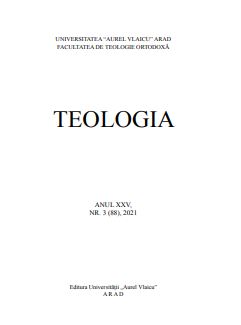Les principes qui sous-tendent les relations entre l’Église et l’État dans l’Union européenne en lien avec les réalités socio-culturelles spécifiques
The principles underlying the relations between Church and State in the European Union in relation to specific socio-cultural realities
Author(s): Patriciu VlaicuSubject(s): Christian Theology and Religion, Human Rights and Humanitarian Law, Politics and religion, EU-Approach / EU-Accession / EU-Development, EU-Legislation, Sociology of Religion
Published by: Editura Universității Aurel Vlaicu
Keywords: human rights; freedom of religion; European Union; State-Church relationship;
Summary/Abstract: The European Union, as a regional organization, has as its main objectives: to provide an area of freedom, security and justice; to combat social exclusion and discrimination; to promote social cohesion and solidarity; to respect the richness of its cultural diversity. The area of church-state relations ensures one of the objectives of the Union, that of being an area of freedom, of which freedom of religion and belief is particularly complex. It is not governed by European rules, but we can note the existence of unwritten principles governing these relations. After clarifying the content of each principle, the study shows which are the main models of Church-State relations at Union level and how they have crystallised on the basis of the specific socio-cultural realities of each context.
Journal: Teologia
- Issue Year: 88/2021
- Issue No: 3
- Page Range: 10-24
- Page Count: 15
- Language: French

